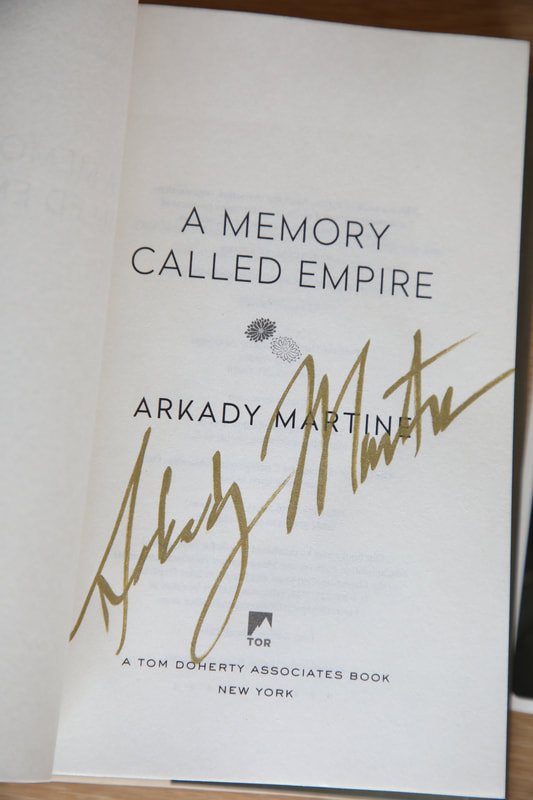

This is the nature of contemporary fiction, I suppose, in a world of hyper-connectivity, especially in a world in which so many people were obliged to isolate themselves at home for so long and so reached for different ways to communicate with other people. This is managed well – Martine, at least according to the afterword, is a generous author who is willing to allow numerous other people to read her work and to incorporate their comments into newer versions. As is usually the case in examples of good literature, these dilemmas are reflected in the progress of the other characters, some of which have similar or parallel issues in their own lives and others who are, so to speak, monolithic in their personalities. However, the deeper themes relate both to difficulties outsiders have in becoming accepted in another society and the nature of identity in a person with perhaps contradictory forms of thinking. This is of course true on the perhaps superficial level that our heroine Mahit is gay and so too might be her friend Three Seagrass – or at least she is open to a same sex relationship. They also further knowledge of queer issues within literature for the general reader. These two books are both very well-written and plotted and lead to a page-turning experience. The book ends with a satisfying-enough conclusion but if I had got to the end and found ‘The story will conclude in the third part’ I would not have been surprised. In this second book, the action becomes principally external and is based on the ability of the protagonists to communicate with the aliens and prevent the spread of a devastating war. The first book had an inward focus, specifically on the interior of Mahit who, in common with leading members of her native space station, contains the consciousness of her predecessors in her own mind. As is often the case with the sequel to a high-concept opening novel, the action has broadened the premises of the world and the original vision is somewhat darkened.

Our focus is placed on the supposed barbarian Mahit Dzmare and her empire friend and sponsor Three Seagrass, together with the new emperor and presumed heir, as well as several prominent people in the emerging war with the aliens. In the second and concluding part of this duology (which itself seems a strange thing – how many authors are able to restrict themselves to just two books for a series?), we return to the heart of the action. We let A Memory Called Empire with the Teixcalaanli polis in crisis : an attempted coup had been narrowly avoided but the threat of interstellar war had become apparent.


 0 kommentar(er)
0 kommentar(er)
